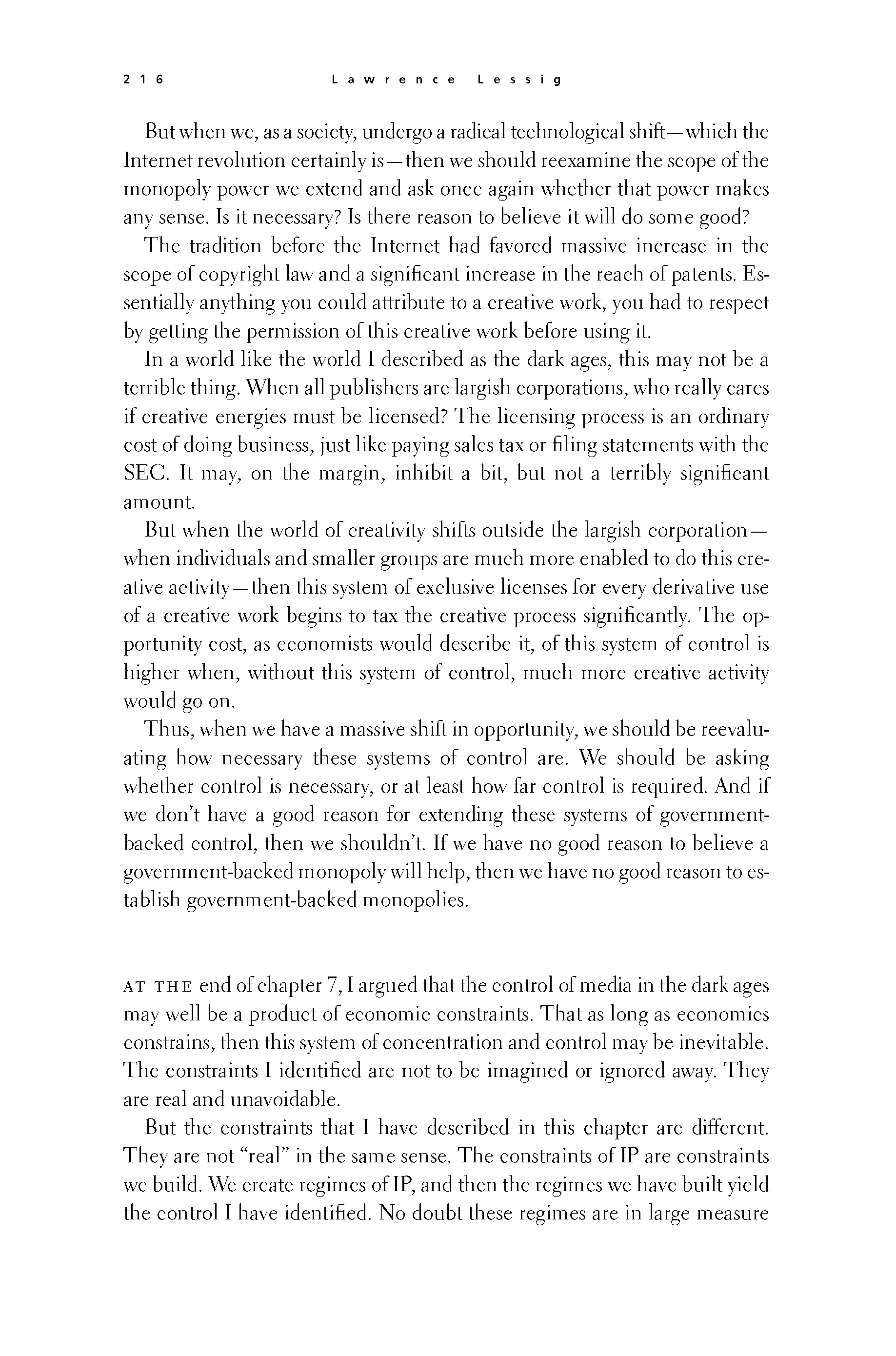 p215 _
-chap- _
toc-1 _
p216w _
toc-2 _
+chap+ _
p217
p215 _
-chap- _
toc-1 _
p216w _
toc-2 _
+chap+ _
p217
But when we, as a society, undergo a radical technological shift -- which the
Internet revolution certainly is -- then we should reexamine the scope of the
monopoly power we extend and ask once again whether that power makes
any sense. Is it necessary? Is there reason to believe it will do some good?
The tradition before the Internet had favored massive increase in the
scope of copyright law and a significant increase in the reach of patents. Es-
sentially anything you could attribute to a creative work, you had to respect
by getting the permission of this creative work before using it.
In a world like the world I described as the dark ages, this may not be a
terrible thing. When all publishers are largish corporations, who really cares
if creative energies must be licensed? The licensing process is an ordinary
cost of doing business, just like paying sales tax or filing statements with the
SEC. It may, on the margin, inhibit a bit, but not a terribly significant
amount.
But when the world of creativity shifts outside the largish corporation --
when individuals and smaller groups are much more enabled to do this cre-
ative activity -- then this system of exclusive licenses for every derivative use
of a creative work begins to tax the creative process significantly. The op-
portunity cost, as economists would describe it, of this system of control is
higher when, without this system of control, much more creative activity
would go on.
Thus, when we have a massive shift in opportunity, we should be reevalu-
ating how necessary these systems of control are. We should be asking
whether control is necessary, or at least how far control is required. And if
we don't have a good reason for extending these systems of government-
backed control, then we shouldn't. If we have no good reason to believe a
government-backed monopoly will help, then we have no good reason to es-
tablish government-backed monopolies.
///\\\
At the end of Chapter 7, I argued that the control of media in the dark ages
may well be a product of economic constraints. That as long as economics
constrains, then this system of concentration and control may be inevitable.
The constraints I identified are not to be imagined or ignored away. They
are real and unavoidable.
But the constraints that I have described in this chapter are different.
They are not "real" in the same sense. The constraints of IP are constraints
we build. We create regimes of IP, and then the regimes we have built yield
the control I have identified. No doubt these regimes are in large measure
[[216]]
p215 _
-chap- _
toc-1 _
p216w _
toc-2 _
+chap+ _
p217